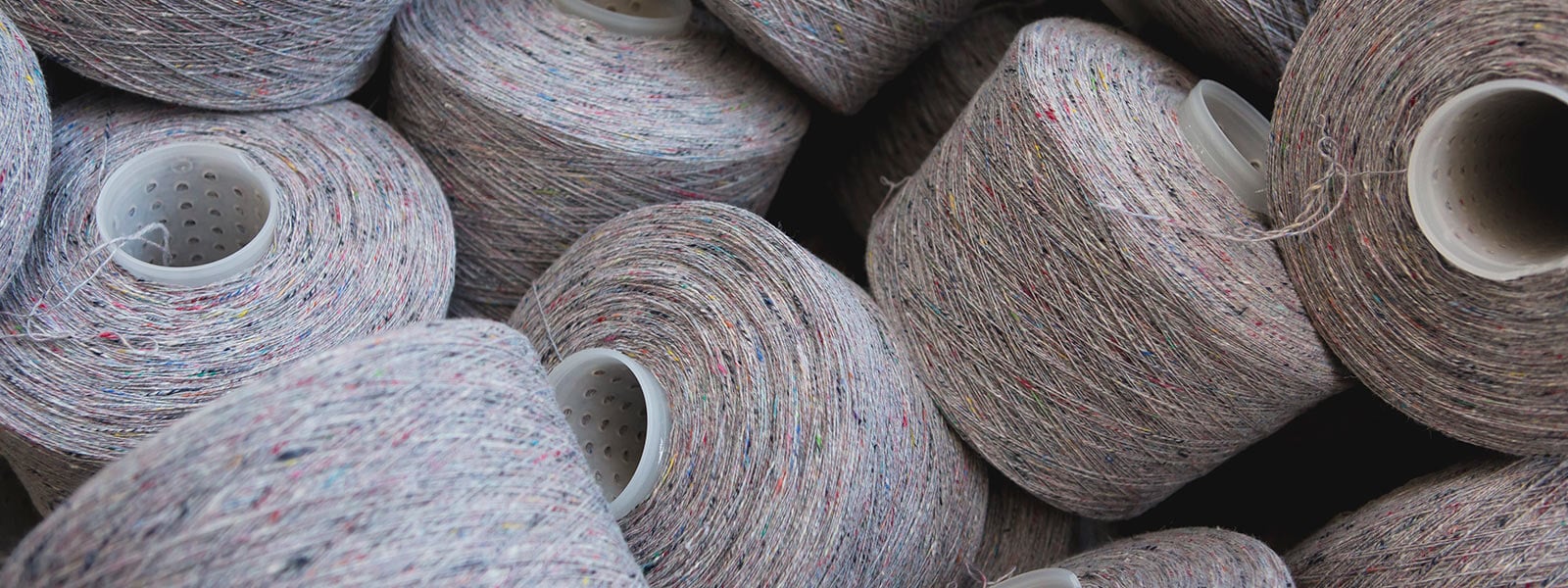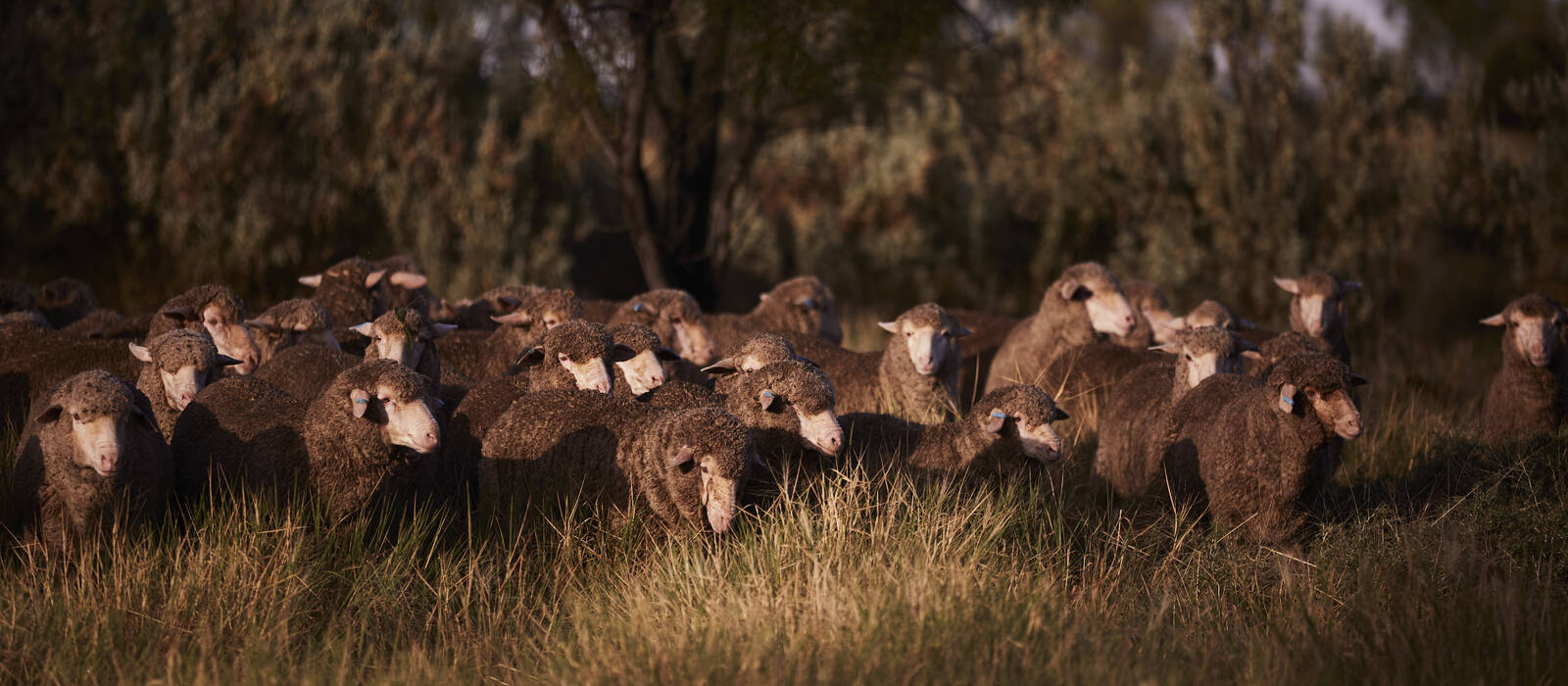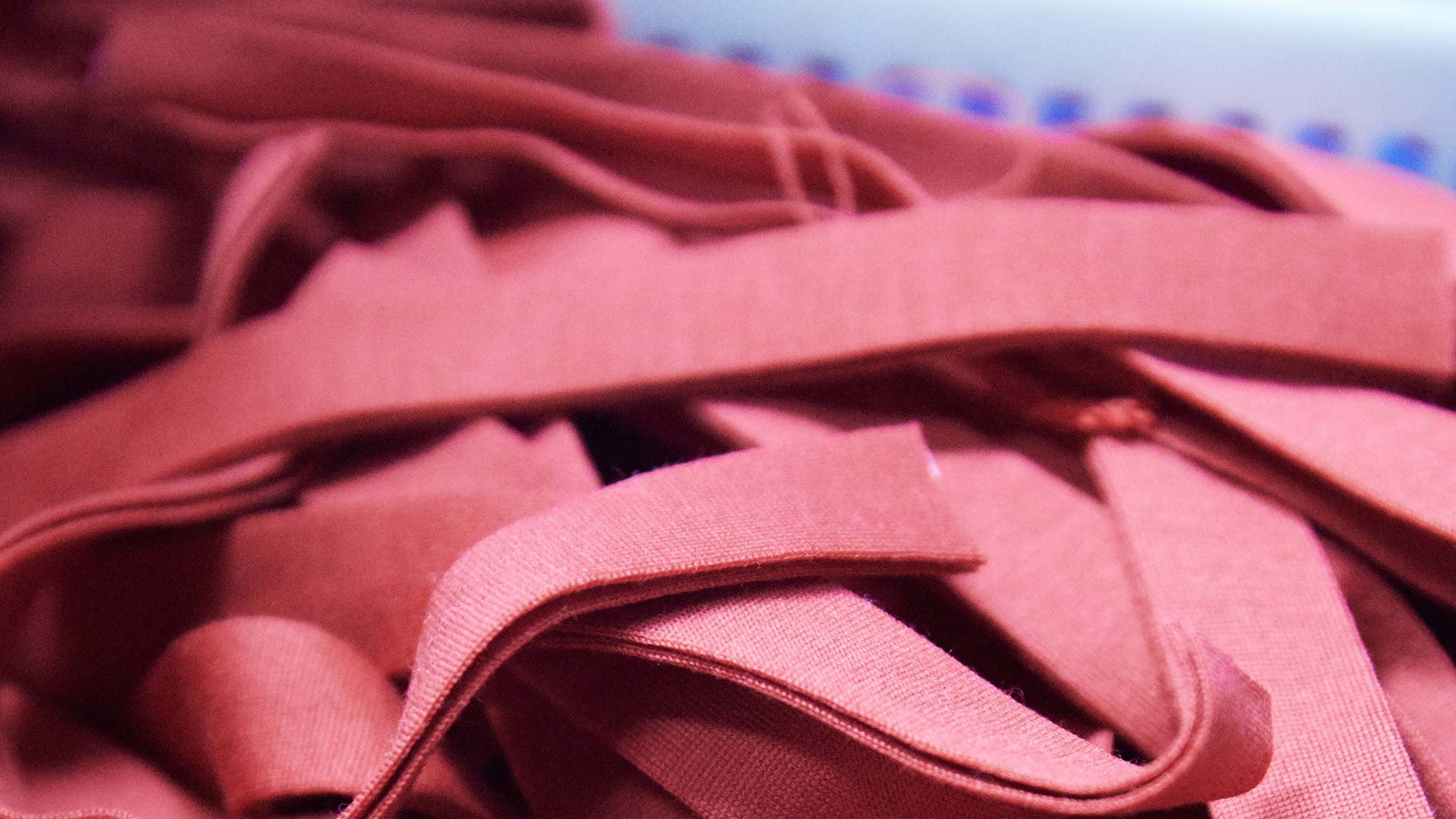Sustainability in the supply chain
On farm
Australian woolgrowers work to preserve, protect and improve the natural resources of their farms; the waterways, valleys and hills, and native plants and animals. From feed supplements for sheep to improving a wool-growing property’s natural capital, discover what happens on farm to mitigate environmental impact in the Australian wool industry.
Supply chain
The latest sustainable innovations in wool processing focus on forward-thinking supply chain practices, from knitting technologies with minimised waste, to chemical free water resistant Optim spinning technology for fashion, sports apparel, protection wear and automotive industries.
Using wool
Wool garments are amongst the longest kept in the wardrobe, often living on through re-sale or change of ownership. Our Wardrobe Study investigates more than 1000 consumers from across the world. Wool can offer solutions to reduce our impact on the environment in the use phase through needing to wash less, and keep longer in our closets.
End of life
100% wool fabrics can biodegrade by 95% after 15 weeks of burial in soil but the rate varies with soil, climate and wool characteristics. Synthetic fibres, on the other hand, can be extremely slow to degrade and significantly contribute to the world’s overflowing landfills and microplastic pollution. Learn more about how wool can reduce microplastic pollution and why the lifecycle of textiles from cradle-to-grave needs to be considered in sustainability ratings.
Natural Capital Accounting
Natural Capital Accounting
Our latest on-farm study has developed a new method of measuring environmental health over time to enable Australian woolgrowers to track the health of their environment.
Wool and Extended Producer Responsibility
Wool and Extended Producer Responsibility
Wool is a perfect fit for brands, designers and supply chain to plan for a circular economy shaped by Extended Producer Responsibility (EPR) environmental policy.
The Problem with Plastics
The Problem with Plastics
Wool fibres are 100% biodegradable in marine environments according to a recent scientific study, meaning wool does not add to microplastic pollution or damage ocean health.
Filter by Fabric
Filter by Fabric
We’re calling on every brand, retailer, textile designer, publisher and content creator to pledge commitment to clear, honest product names that state accurate fabric descriptions. Together, we can drive positive change. Read our open letter and sign the pledge here.
Download the sustainability toolkit
For designers, brands and manufacturers looking for sustainable material solutions, wool is a natural, technical and circular fibre that can be easily integrated into sustainable material strategies. Download the Wool: a sustainable solution toolkit to discover how wool aligns to the UN SDGs, is an inherently circular fibre and the latest innovations that reduce the environmental impact of textile manufacture.
Wool and the UN Sustainable Development Goals
The wool fibre and Australian wool industry are aligned to 11 of the UN SDGs. From responsible farming practices and manufacturing efficiencies to end-of-life garment disposal, we are working towards a positive future.
How woolgrowers are reducing emissions and mitigating methane



